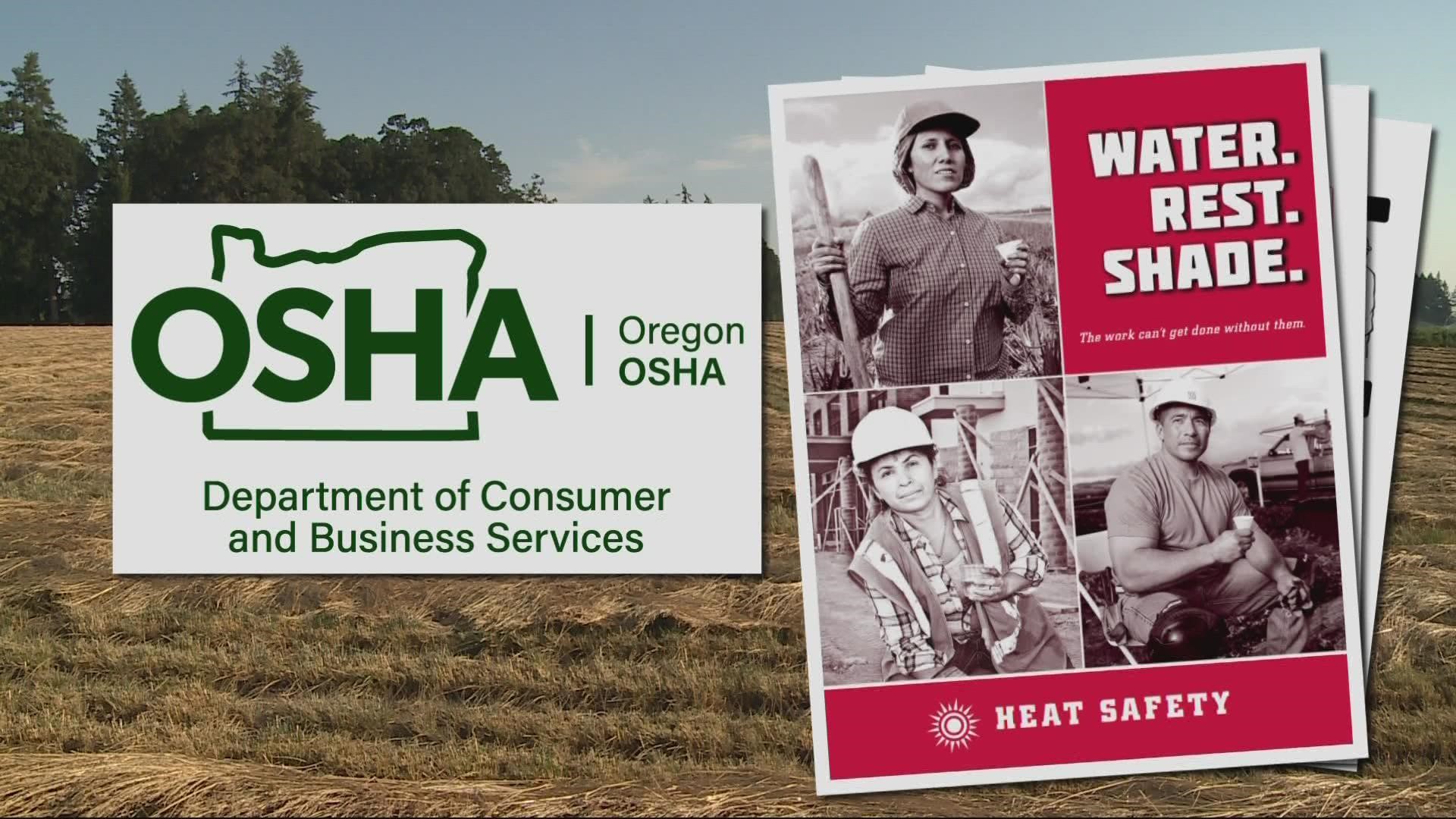PORTLAND, Ore. — With new rules in effect to protect workers during hot temperatures, Oregon Occupational Safety and Health Administration (OSHA) has received more than 60 complaints for heat-related concerns at workplaces as hot temperatures have hit the Northwest this week.
OSHA has at least nine open heat-related inspections in which businesses will receive citations.
Oregon OSHA's new rules took effect in June, in part as a response to last year's heat dome that was deadly to many, including some who had to work in it.
Now Oregon OSHA says when the heat index hits 80-degrees, employers must provide access to shade and water for people working outside, or indoors without a ventilation system.
When it hits 90-degrees and above like it is now, employers must provide more breaks, more communication and more close monitoring for heat exhaustion or heat stroke.
OSHA said the cases it's monitoring at the moment in the metro area include an inspection at a Fred Meyer warehouse in Clackamas after a heat-related complaint and at least three open inspections in Portland at worksites such as food carts and restaurants. OSHA has also received 10 complaints in Eugene and is doing three heat-related inspections in Medford.
Multnomah County's acting health officer said employers should follow those rules and workers should get help if they need it.
“They're going to really need to be able to say 'I need to get to a cool place, I really need to take a break, I'm starting that sweaty queasy headache feeling,'” said Dr. Ann Loeffler.
Multnomah County Health said at least a third of emergency room visits for heat exposure this week at local hospitals are people who got too hot while on the job. Many of them are young and otherwise healthy people.
“On one hand I think this is uber scary, on the other hand, I think maybe people are hearing the message—You know it's better to treat when you're in that heat exhaustion phase when cool and cooling blankets and possibly IV fluids can basically get that person right as rain,” said Loeffler.

